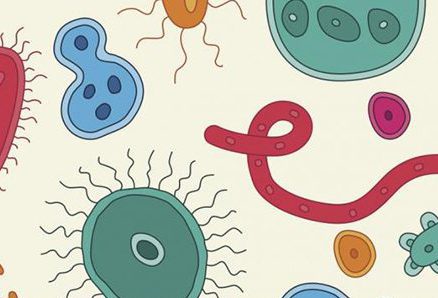We now know, our gut and brain are linked as they share many of the same nerve endings, hormones and neurotransmitters. Accordingly, it only makes sense that our emotions can have a significant impact on the physiological functioning of our gut and vice versa. We also know that the food we consume will influence the type and balance of bacteria in our digestive tract. However, the opposite can also be true, the bacteria we house can influence our food cravings and what we choose to eat!
The human body is in a constant state of survival. It only makes sense that our gut bacteria have the same idea. New research is looking at how a specific type of gut bacteria can influence the hosts’ nutritional decisions, especially when it comes to protein. When certain essential amino acids (protein) are lacking from the diet, gut bacteria can increase appetite for protein. In the reverse, if two specific species of bacteria are found together, appetite for protein can be suppressed – it is suggested, the bacteria ‘manufacture’ the missing protein themselves.
Whilst such findings are presently limited to animals, it’s a good reinforcement of the communication between the gut and brain and reminder to take care of gut health.
My top tips to promote healthy gut bacteria:
- Consume adequate fibre daily to feed good gut bacteria aiming for 25-30g daily
- Eg LSA, fruits, vegetables, legumes, nuts and seeds, wholegrain carbohydrates
- Introduce fermented foods to your diet
- Eg Kimchi, kombucha, miso soup, tempeh, sauerkraut and kefir
- Eat at least 2 serves of omega-3 fatty acids daily – reduced inflammation is linked to a better balance of bacteria in the gut
- Salmon, sardines, chia seeds, walnuts, flaxseeds
- Eat mindfully in a claim state – this ensures we get the must nutrition out of food to feed out gut bacteria
- Chew food until liquid
- Eat away from screens
- Eat when not feeling stressed
- Smell and look at food before eating
- Avoid excessively low-carb diets long terms – gut bacteria feed off carbohydrates and prebiotics
- Opt for good quality carbs: sweet potato, rice, quinoa, oat bran, oats, fruits, legumes/lentils, sourdough
- Avoid limiting the diet – diet diversity assists with promoting a healthy balance of bacteria
- Eat seasonally and enjoy a wide variety of fruits and vegetables on a weekly basis
- Rotate grains, legumes, nuts and seeds daily – purchase from health food store scoop bins so you can just purchase a little bit at a time
Reference
Leitão-Gonçalves R, Carvalho-Santos Z, Francisco AP, Fioreze GT, Anjos M, Baltazar C, et al. (2017) Commensal bacteria and essential amino acids control food choice behavior and reproduction. PLoS Biol 15(4): e2000862. https://doi.org/10.1371/journal.pbio.2000862
